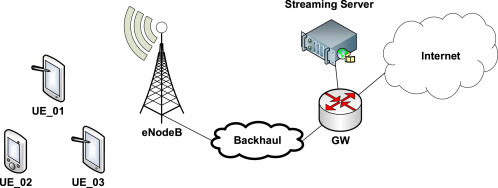Performance evaluation of different techniques to estimate subjective quality in live video streaming applications over LTE-Advance mobile networks
Current mobile service providers are offering Gigabit Internet access over LTE-Advanced networks. Traditional services, such as live video streaming, over wired networks are feasible on these networks. However different aspects should be taken into account due to the fast changing network conditions as well as the constrained resources of the mobile phones, in order to provide a good subjective video quality in terms of Mean Opinion Score (MOS). Our goal is to estimate and predict this subjective metric without information or reference from the original video, known as Non Reference approach. This approach is important for the Service Provider from a practical point of view, because it can keep the customer satisfaction at good levels. We analyze different estimation techniques running over a set of monitored variables throughout the whole steaming system, from the streaming server to the mobile phone. We have gathered variables related to bit stream, basic video quality metrics as well as Quality of Services variables. These variables are used to estimate MOS in a reliable and robust way. We compare three techniques such as Artificial Neural Networks (ANN), Factor Analysis (FA) and Multinomial Linear Regression, at different time scales and with Full Reference and Non Reference approaches. We carry out a performance evaluation of these techniques, concluding that the behavior of MOS estimation based on FA is more accurate, unless we had a lossless scenario related to Guaranteed Bit Rate services, where ANN performs better. The subjective video quality has been evaluated through surveys. Finally, we evaluate the accuracy of the estimated MOS against well known publicly available video quality algorithms following the recommendations given by Video Quality Experts Group (VQEG).

If you want to know more about this topic, see the original article.






